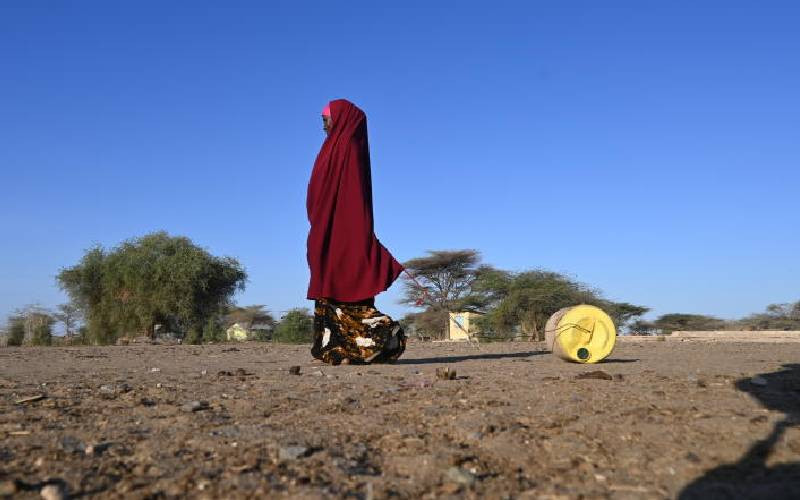×
The Standard e-Paper
Smart Minds Choose Us

A woman walks to a watering point in Modogashe, Garissa County. [Denish Ochieng, Standard]
Next time you wonder why friends whose wedding you attended a decade ago are not getting children, think before asking when they plan to name a newborn after a grandparent.